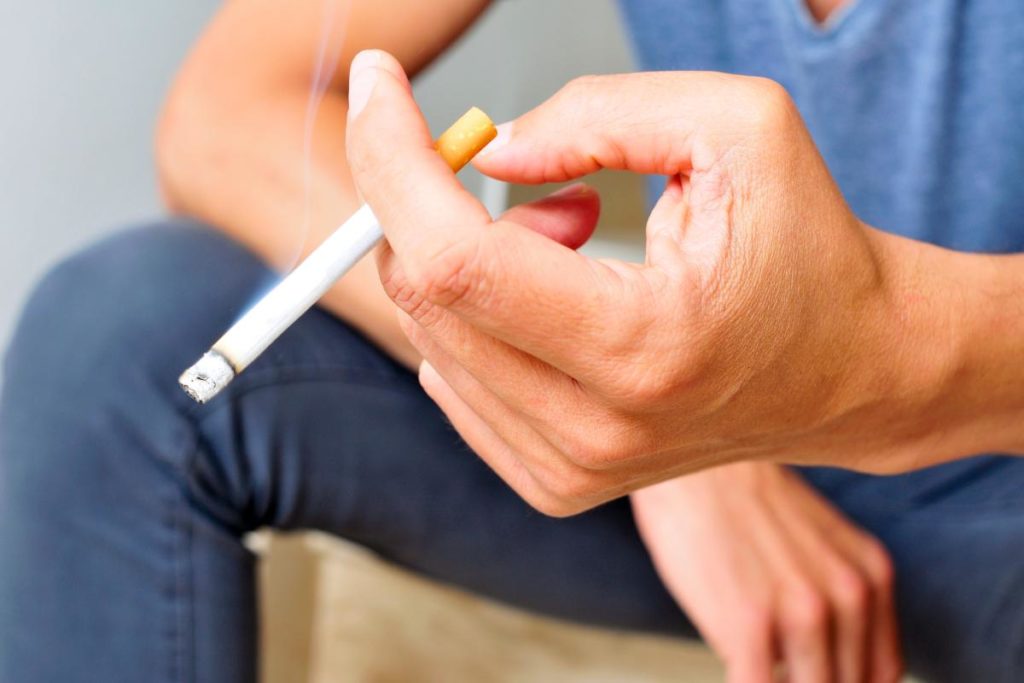It is not uncommon for patients in addiction treatment programs to have a smoking habit. They may have an existing cigarette addiction or have picked up smoking as a coping mechanism while attempting to wean from drugs or alcohol. While recovery from addiction would take precedence over quitting smoking, abstaining from cigarettes would benefit a patient’s overall health in the long run. Though you can be sober and still smoke cigarettes, its exclusion from many detox and rehab programs is still preferable.
At Ashwood Recovery in Boise, Idaho, we offer a wide variety of rehab and addiction treatment programs that help patients heal from behavioral health issues, substance abuse disorders, and other co-occurring conditions. We provide a safe environment and individualized care that can help you in your recovery and long-term sobriety. For more information, please reach out to us at 888.341.3607.
Can You Be Sober and Smoke Cigarettes?
Though an alcohol or drug addiction may be treated without necessarily quitting cigarettes, continuing to smoke can impact long-term sobriety. Smoking after recovery may lead to relapses as smoking is usually behaviorally or neurochemically linked to previous substance or alcohol abuse.
While the short-term effects of cigarette smoking are not as harmful as narcotics or alcohol, the long-term impact on your body could be just as bad. Here are some of the illnesses caused by smoking:
- Cancer
- Heart disease
- Stroke
- Chronic obstructive pulmonary diseases, such as emphysema or bronchitis
- Tuberculosis
- Certain eye diseases
- Immune system problems, such as rheumatoid arthritis
Aside from these long-term side effects, there are also some immediate adverse effects such as:
- Decreased sense of taste and smell
- Difficulty breathing
- Yellowing teeth
- Decreased ability to heal from illness or injury
Even with these negative side effects, some smokers believe that smoking during early recovery helps relieve the anxiety and stress caused by withdrawal. However, doing so may be counterproductive. Including quitting smoking in your detox for addiction treatment may help return your brain’s reward system to a state of balance.
How Can You Quit Smoking During Detox?
Giving up smoking will improve long-term health and strengthen recovery. Eliminating smoking can also reduce a significant psychological trigger for alcohol and drug abuse. Recovering from all forms of addiction will support long-term sobriety.
Trying to quit smoking while recovering from an alcohol or drug addiction may be difficult. If someone cannot give up smoking while abstaining from drugs or alcohol, it may negatively impact their sobriety. This is why enrolling in an addiction treatment program may be beneficial to receive the medical and psychological support you need during a full detox, which would be dangerous and difficult to attempt on your own. Being at home also presents many triggers that may trigger a relapse.
Enroll in an Addiction Treatment Program at Ashwood Recovery in Boise, Idaho
At Ashwood Recovery, our addiction treatment programs are individually tailored to each patient’s needs. Our intensive outpatient program (IOP), partial hospitalization program (PHP), and outpatient program (OP) provide inclusive support built around the schedule and lifestyle of each patient. Smoking cessation may be included in any treatment program to ensure holistic recovery.
We employ in-person and virtual support tools to find which best works for each patient. Our treatment programs use a wide variety of therapies such as:
- Family therapy
- Cognitive behavioral therapy
- Art therapy
- Group therapy
Ashwood Recovery’s modern facility is conveniently located in Boise, Idaho. We offer a safe, therapeutic environment to allow patients to heal most effectively. If you or a loved one is ready to start or continue your recovery journey, please get in touch with us at 888.341.3607 for more information.

